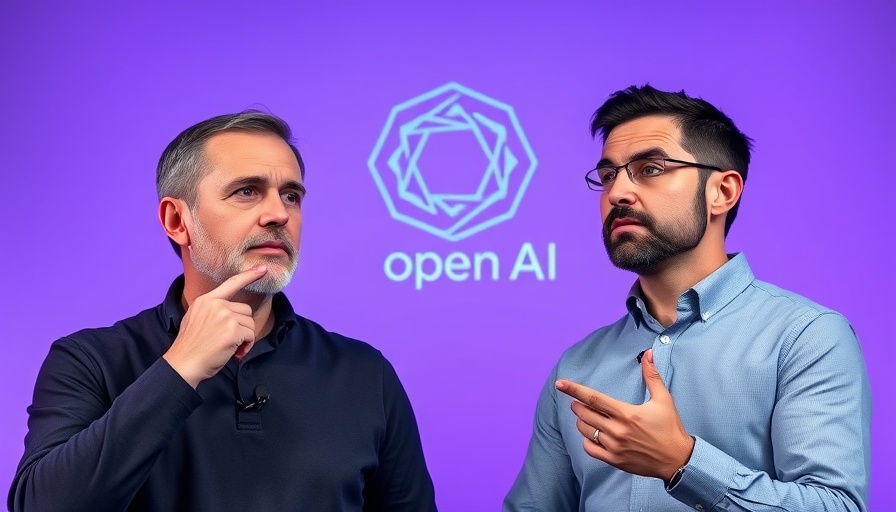
The New Frontier: AI in the Public Sector
Salesforce has recently unveiled its latest initiative to integrate AI into public sector organizations with the launch of its AI AgentForce. This expansion underscores the growing importance of AI technology in managing public affairs efficiently. Public sector agencies are increasingly adopting AI tools that enhance decision-making, streamline operations, and improve citizen engagement, leading to viable solutions that can address complex societal challenges.
What’s Distinctive About AI AgentForce?
AI AgentForce aims to allow public sector workers to interact with AI-driven agents that help automate routine tasks and foster better service delivery. Unlike conventional customer service bots, these agents are designed explicitly to understand and react to the unique demands of the public sector, from local government inquiries to federal services. This specialization could result in more personalized experiences for citizens while allowing public sector employees to focus on their core missions without drowning in administrative responsibilities.
A Look at Recent AI Trends in Government
The introduction of AI AgentForce is part of broader trends where AI is increasingly seen as integral to government operations. A report published by the International Data Corporation highlights that governments globally are investing in AI technologies aimed at bolstering efficiency. For busy professionals, the relevance of this comes from how these systems can lead to improved service delivery experiences. Entrepreneurs, in particular, can learn from these trends to enhance their own operations by adopting AI tools that streamline their workflows.
Real-world Applications of AI in Public Sector
AI applications within the public sector are not just theoretical; many forward-thinking organizations have started harnessing these technologies already. For instance, various city councils are utilizing AI analytics to predict citizen needs and allocate resources more effectively. This proactive approach can be immensely beneficial when prioritizing tasks or managing crises, thus paving the way for a more resilient public service.
Potential Challenges and Considerations
While the transition towards AI-driven solutions is promising, it is not without challenges. Critics often raise concerns regarding data privacy, ethical considerations, and the potential for technological unemployment among public workers. These challenges underscore the need for robust frameworks that balance innovation with ethical standards. Listening to diverse perspectives in this area is crucial for fostering responsible AI integration in public services.
Why You Should Care About AI in Public Service
Understanding the developments in AI for the public sector is not just relevant for government employees. Entrepreneurs and professionals can glean insights into how these tools can solve everyday problems and streamline their operations. Leveraging AI effectively can enhance productivity, allowing small business owners to allocate fewer resources on mundane tasks and focus on strategic growth instead.
As AI continues to evolve, staying informed about the latest AI news in 2025 will be vital for anyone operating within or alongside the public sector. Whether it’s improving service delivery, managing workloads, or anticipating citizen needs, there’s a wealth of knowledge to glean from these advances.
Strategies for Small Businesses to Embrace AI
For entrepreneurs eager to implement AI in their workflows, exploring established tools like Salesforce’s AI offerings provides robust starting points. The Salesforce ecosystem is designed to be user-friendly, featuring extensive resources and tutorials for AI integration. You can enhance your organization by knowing how to use AI tools effectively.
Join the AI Conversation Today
Understanding the implications of AI within the public sector and its potential impact on businesses can offer valuable insights for entrepreneurs and professionals alike. To take action, consider exploring how AI technologies can create efficiencies within your own ventures. Stay connected with the latest AI updates to remain competitive in the evolving landscape and leverage tools that can help grow your business.
 Add Row
Add Row  Add
Add 




Write A Comment